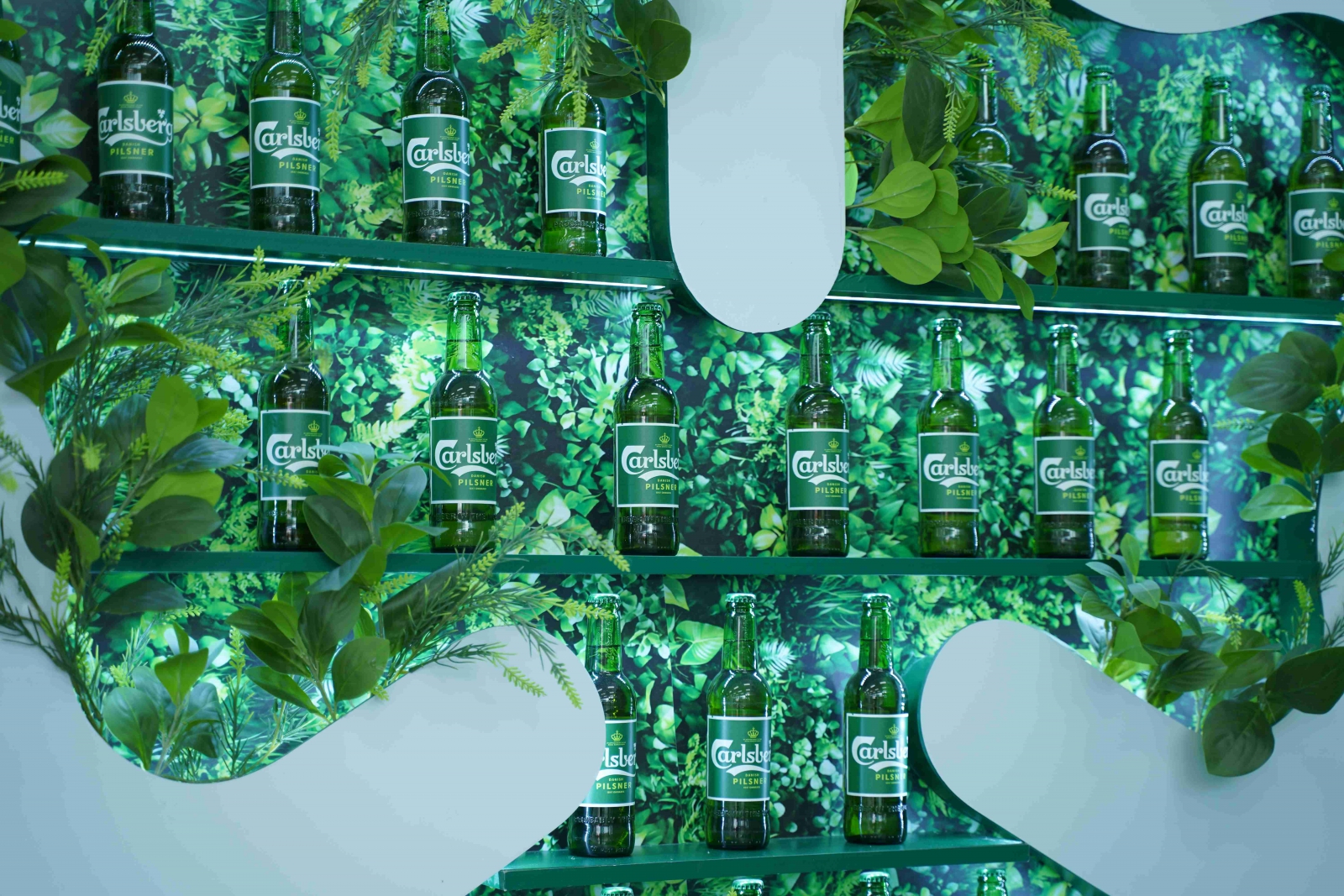.jpg)
Carlsberg Vietnam’s brewery expansion puts carbon reduction and sustainability at the core. (Photo: Calsberg group)
Carlsberg Vietnam officially inaugurated its Phu Bai Brewery Expansion Project on Aug. 26, marking the completion of a major upgrade that integrates high-efficiency, low-carbon technology.
The new facility runs on renewable electricity, has cut energy use by 15% and water consumption by 20%, and aims to achieve zero landfill waste by 2025 and net-zero operations by 2028.
Expansion makes Carlsberg’s Phu Bai the largest in Asia
According to Carlsberg, the expansion cost US$90 million and will boost Phu Bai Brewery’s production capacity by 50%, establishing it as Carlsberg’s largest production base in Asia.
Andrew Khan, Managing Director of Carlsberg Vietnam, said the facility is equipped with advanced technologies that allow for more efficient brewing while reducing environmental impact.
The brewery already runs on I-REC-certified green power and biomass energy, and all wastewater is treated through advanced filtration systems. Last year, Phu Bai ranked among the top 10 Carlsberg breweries in Asia for water efficiency, and also performed strongly against local peers in Vietnam.
Waste management has also been integrated into the expansion, ensuring the brewery remains on track to achieve its zero-landfill and net-zero manufacturing targets. Carlsberg Vietnam is additionally targeting 100% reusable or recyclable packaging for bottles, kegs, and cans by 2026.
In terms of efficiency, Phu Bai hosts Vietnam’s fastest packaging line, deploys AI-powered electric forklifts to enhance safety, and leverages real-time production data to maintain quality and precision.

The brewery already runs on I-REC-certified green power and biomass energy, and all wastewater is treated through advanced filtration systems. (Photo: Calsberg group)
European brewers push sustainability in Vietnam: Heineken rolls out 4R strategy
Phu Bai Brewery’s upgrade follows Carlsberg’s global sustainability program “Together Towards ZERO and Beyond” (TTZAB), which sets concrete goals on climate, resource use, and workplace safety—including Zero Carbon Footprint, Zero Farming Footprint, Zero Packaging Waste, Zero Water Waste, and a Zero Accident Culture.
Carlsberg, one of the earliest Danish investors in Vietnam since 1993, now employs over 3,800 people directly and indirectly in the country. With more than 30 years rooted in Hue, the company produces not only its flagship Huda brand, known as the “Pride of Central Vietnam”, but also 1664 Blanc, Tuborg, and Somersby cider.
Similarly, Dutch brewer Heineken, which also entered Vietnam in the 1990s, is aligning with the government’s 2050 net-zero target. Its 4R strategy covers: reducing energy consumption, replacing fossil fuels with renewable energy, removing and offsetting residual emissions, and reporting and evaluating impacts.
.jpg)



